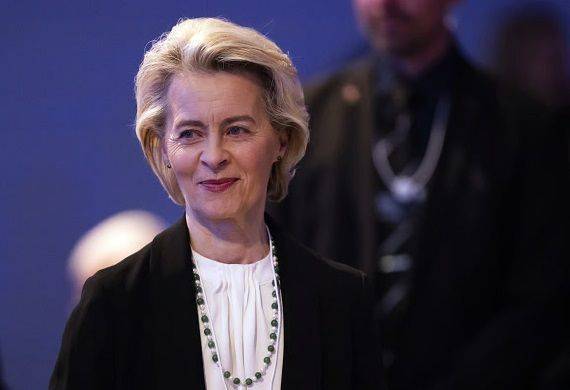EU to Speed Up End to Russian Energy Imports by 2027
By Global Leaders Insights Team | Sep 17, 2025

The European Union, led by European Commission President Ursula von der Leyen, is pushing to stop all Russian fossil fuel imports by the end of 2027.
This bold plan comes after talks with U.S. President Donald Trump and is part of the EU’s effort to break free from relying on Russian energy, a move sparked by Russia’s invasion of Ukraine in 2022.
Von der Leyen stressed the need to quickly reduce the EU’s dependence on Russian gas, oil, and liquefied natural gas (LNG) to boost energy security and keep Europe’s economy strong.
Next month, the Commission will roll out proposals to ban new Russian gas contracts starting January 1, 2026, and phase out short-term contracts by June 2026. Long-term contracts, like those held by companies such as TotalEnergies and Spain’s Naturgy, will end by December 2027.
- EU Plans Full Ban on Russian Energy Imports by 2027
- Von der Leyen Pushes EU to End Russian Gas, Oil, LNG Reliance
- Europe Speeds Up Energy Shift with 2027 Russian Import Exit
However, landlocked countries like Hungary and Slovakia will get a bit more time to keep some pipeline gas contracts until 2027.
The EU has already made progress, cutting its reliance on Russian gas from 45% before the Ukraine war to just 19% last year. This new plan builds on the EU’s REPowerEU strategy, which focuses on finding new energy suppliers and improving the EU’s gas infrastructure.
EU Energy Commissioner Dan Jørgensen called the 2027 goal “ambitious” but realistic, rejecting a U.S. suggestion to phase out Russian energy in just six to twelve months using American LNG. Jørgensen said a rushed timeline could spike energy prices or cause shortages.
Also Read: Starmer Slams Elon Musk as 'Hostile Billionaire' at Rally
Not everyone is on board. Hungary and Slovakia, which depend heavily on Russian pipeline gas, worry the plan will hurt their economies and have hinted at blocking EU sanctions. To keep things transparent, the EU will require companies to share details of their Russian gas contracts.
This push shows the EU’s determination to secure its energy future and shift toward cleaner energy, but it’ll need to navigate economic and political hurdles to make it happen.
.jpg)



